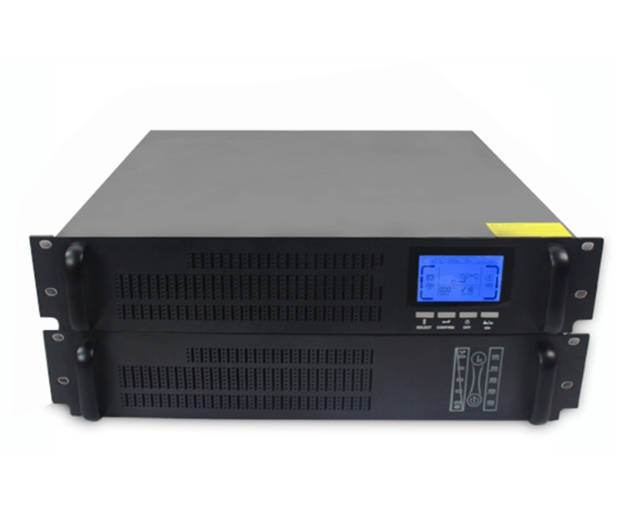

UPS stabilizers are essential components in power management, helping to maintain the voltage level and protect prized equipment from fluctuating power supply. Awareness of the available capacities is essential to choose an appropriate UPS stabilizer according to the requirement. These capabilities differ a lot based on the application, including industrial, residential, or commercial applications.
Every industry requires strong and high-power UPS stabilizers because industries run heavy machinery and critical systems. For industrial applications, the typical capacities range from 10 kVA to more than 500 kVA. These large-capacity devices support high electrical load accommodation and combine these with a backup to allow for no downtime during a power failure or power quality disturbances. Demand for such abilities is fueled by the need to keep productivity up and avoid costly downtime.
Lower-capacity UPS stabilizers are usually enough for household and commercial use. These environments have stabilizers of 1 kVA to 20 kVA Units of this size handle light to moderate power loads, serving as an effective buffer for home and office equipment and small business applications. These applications typically have a passive capacity, which is determined by the power requirements of the protected devices.
Selecting an appropriate UPS stabilizer capacity involves careful consideration of several factors that can impact performance and efficiency.
Load requirement is one of the important factors in determining the required capacity of the UPS stabilizer. Determining the total wattage of all connecting devices: The total wattage of all connected devices must be checked before finalizing the stabilizer so that it can support them without overload. Finding proper load calculation prevents under-sizing and over-sizing them which is both inefficient and exposes the property for inefficiency.
Besides, UPS stabilizer capacities can also be affected by environmental conditions as well as installation constraints. The performance of a stabilizer may vary from location to location due to ambient temperature and high humidity otherwise less availability of room. Also, installation restrictions such as access to electrical panels or distance from load centers need to be considered to make sure the system works properly.
Understanding the technical specifications of UPS stabilizers is vital for evaluating their effectiveness in various applications.
Voltage regulation is a critical aspect that defines a UPS stabilizer‘s ability to maintain stable output despite input fluctuations.
The relevance of voltage regulation changes by different capacities. Such industrial stabilizers have very high capacity and their voltage requires precision regulation to avoid risking sensitive equipment from voltage spikes or drops. In contrast, smaller residential units are more concerned with maintaining voltage for electronics in the home so that they can function properly and last as long as possible.
The performance and longevity of the devices are directly related to effective voltage regulation. Uniform voltage prevents overheating, extends component lifetimes, and improves overall system reliability. Especially among mission-critical applications, where equipment failure can create large-scale operational disruptions, this is critical.
Battery backup duration is another key specification that influences the choice of UPS stabilizers across various capacities.
Any UPS stabilizer has a different battery life based on the battery capacity. Bigger units tend to provide longer backup periods because they can accommodate larger battery banks. Conversely, smaller units may offer much shorter backup times but often are ideal for less intensive applications that can tolerate brief periods with no electricity.
You should also consider energy efficiency when comparing the capacities of different UPS stabilizers. Models with high efficiency during regular operation lead to reduced energy consumption with low heat generation resulting in savings over hours or days. Energy-efficient designs also play a large part in sustainability by reducing carbon footprints typically linked to energy consumption. They also help to protect the environment by reducing carbon emissions related to energy consumption.
Smart technologies provided by ZLPOWER allow modern UPS stabilizers to achieve greater energy efficiency, higher reliability and improved overall performance in real-world applications. Through this integration, users can access unique power management solutions to solve their specific needs effectively.
Modern UPS stabilizers have evolved to incorporate advanced features that enhance their functionality and adaptability to various power management scenarios.
The shift towards sustainable energy solutions has driven the integration of UPS stabilizers with renewable energy sources. This compatibility allows for a seamless transition between traditional power grids and alternative energy inputs.
Solar panel and wind turbine-compatible UPS stabilizers are now available which help the user utilize the Sun and wind as per their efficiency. By coupling these two together, it guarantees power consumption even if traditional power sources are missing which means it is contributing towards energy independence and minimizing reliance on fossil fuels. With a direct connection to solar or wind systems, these stabilizers not only regulate the variable output of those renewable sources but also supply devices with stable voltage levels.
UPS stabilizer technology has also made another breakthrough with the connection with smart grids. With the same smart grid connectivity, real and time data can be exchanged across the stabilizer and the power grid allowing for effective energy distribution and load management. Giving it the capacity to dynamically adjust on the basis of grid conditions allows for greater efficiency and system reliability.
The incorporation of remote monitoring and management capabilities in UPS stabilizers offers users enhanced control over their power systems.
An IoT-enabled UPS stabilizer allows advanced capacity management it works based on continuous monitoring of capacity in real-time. By using Internet of Things (IoT) devices, operational data can be transmitted to a centralized platform enabling users to monitor the performance metrics, forecast maintenance requirements, and reduce energy consumption remotely. Such interconnectivity leads to actionable intelligence into system performance and better decision-making on health and efficiency.
Complementing the hardware capabilities of modern-day UPS stabilizers, advanced software solutions provide easy interfaces for device configuration and control. Such platforms give users insights on power status, battery health, and environmental statistics.
 ZLPOWER‘s Offerings in UPS Stabilizers and Beyond
ZLPOWER‘s Offerings in UPS Stabilizers and BeyondZLPOWER stands at the forefront of innovation in the field of power management solutions, offering a comprehensive range of products designed to meet diverse needs.
ZLPOWER‘s lineup of UPS stabilizers is engineered to deliver superior performance across various applications. Their products are renowned for their reliability, efficiency, and cutting-edge technology.
Some of the key features of ZLPOWER UPS stabilizers are as follows: This involves the implementation of cutting-edge voltage regulation technologies that provide some of the highest stability of output under all conditions of varying input. Their units also have a reliable battery backup that can keep running for a long during outages. ZLPOWER products use a modular design, which is very easy to expand.
Beyond UPS stabilizers, ZLPOWER has diversified its offerings to include solar inverters and other innovative solutions that address emerging energy challenges.
Through these achievements, ZLPOWER‘s solar inverter technology proves the company‘s dedication to sustainable design and efficiency. Their solar inverters are engineered for maximum efficiency, converting sunlight into usable electricity with minimal loss. By integrating intelligent features such as real-time monitoring and adaptive load management, these inverters enhance the effectiveness of solar installations while providing users with greater control over their energy systems.